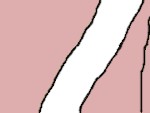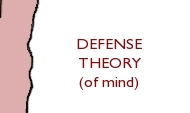|
Grandin (2008) asserted that there is a big difference between old and new aspies, that aspies of previous generations have tended to be more successful in jobs and relationships because rules and manners were more structured in the 1950s and 1960s. She uses herself as an example—her success, she maintained, dealt largely with her mother being very specific about what qualifies as inappropriate behavior. As autistics, like their neurotypical colleagues, enter the college composition classroom, they might (or might not) have idiosyncratic “issues” or “big, bad problems” as related to writing. Their essays may lack transition or typical, accepted structure; their essays may be too concerned with details and not enough on the big picture; their essays may grossly deviate from the assignment and their professor's expectations. How to drill these students into accepted conventions? As an autistic and a composition instructor, this standards-meeting—its own form of passing—troubles me. I want my students to be audience-aware. I want myself to be audience-aware. Yet, the Grandinesque image of drill-repeat, drill-repeat seems so metonymically wrong, so militaristic and forced. In these instances of appropriateness and standards, the telepresent me emerges, a me that is not me, but a mask, the only time I am truly an autistic shell. Any discussion of student "error" leads me to question the axiological underpinnings of the university. What makes good writing, and who/what makes it so? I wonder how composing the standard, white, male, neurotypical essay affects autistic writers: what do they have to give up in order to write—or try to write—in this manner? In what ways does the academy devalue their ways of knowing, thinking, and making sense of the world? |














